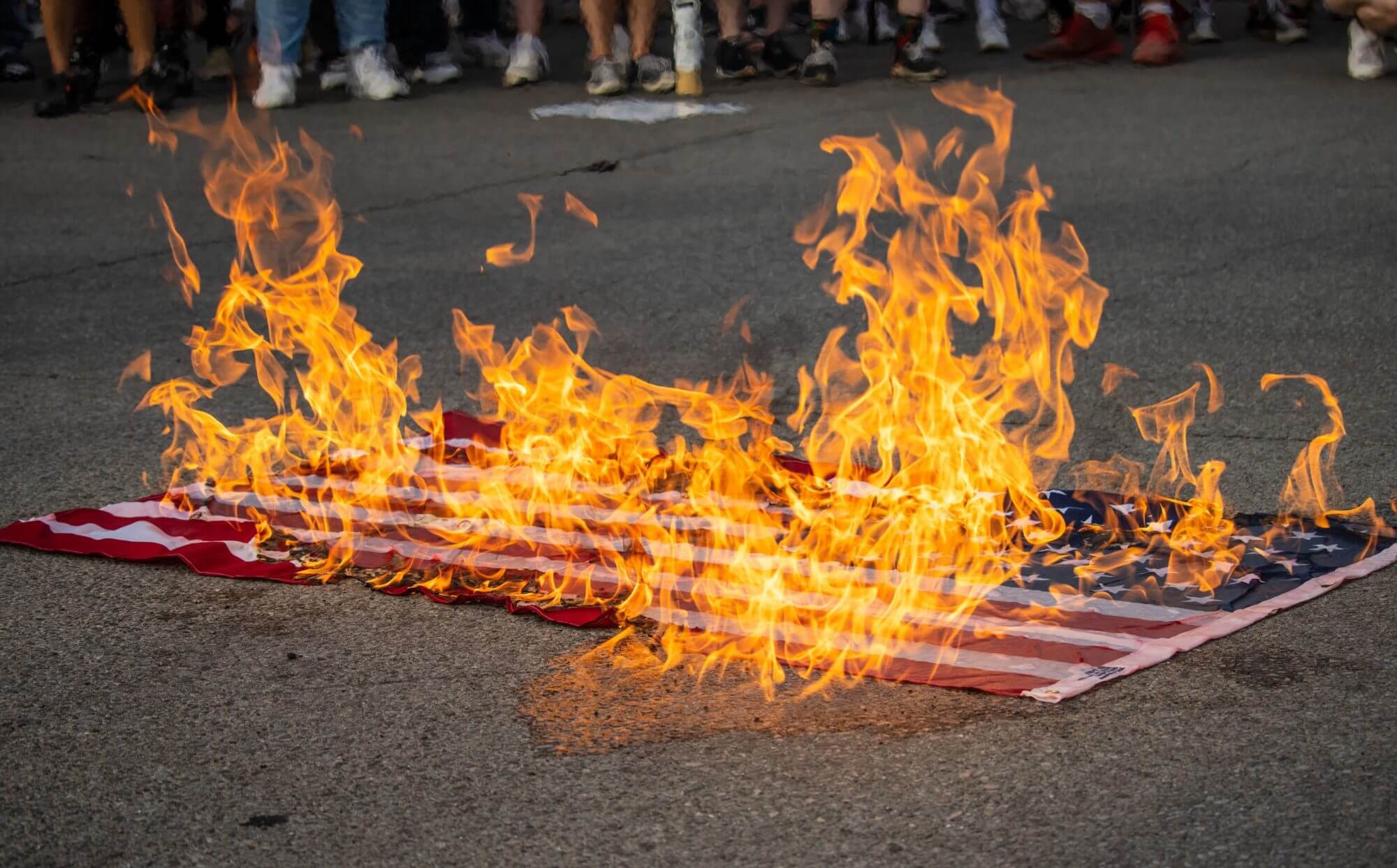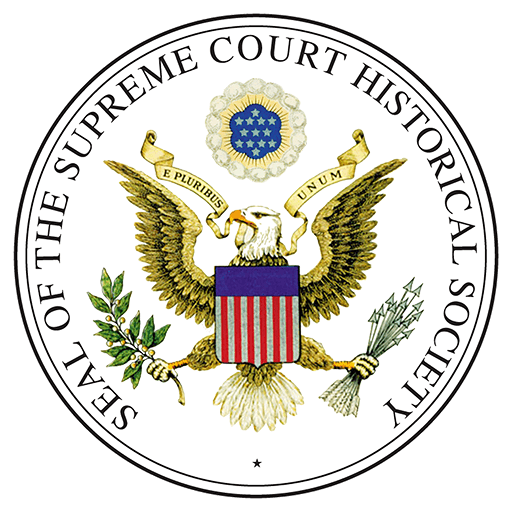
Texas v. Johnson (1989)
Burning the American Flag is Protected Symbolic Speech
Protesters burn a United States flag, 2022
Photo Credit: Becker1999 from Grove City, OH, CC BY 2.0, via Wikimedia Commons
Overview
In a political demonstration during the Republican National Convention in Texas, Gregory Lee Johnson doused an American flag with kerosene and set it on fire. He was part of a group protesting the policies of the Reagan Administration and of certain corporations based in Dallas. No one was hurt or threatened with injury, but some witnesses said they were seriously offended. Johnson was charged and convicted with the desecration of a venerated object, in violation of the Texas Penal Code. In a split decision, the U.S. Supreme Court determined that Johnson’s actions were symbolic speech protected by the First Amendment.

Protesters burn a United States flag, 2022
Photo Credit: Becker1999 from Grove City, OH, CC BY 2.0, via Wikimedia Commons
"If there is a bedrock principle underlying the First Amendment, it is that the government may not prohibit the expression of an idea simply because society finds the idea itself offensive or disagreeable."
- Justice William Brennan, speaking for the majority
Learning About Texas v. Johnson
Students
This section is for students. Use the links below to download classroom-ready .PDFs of case resources and activities.
About the Case
Full Case Summaries
A thorough summary of case facts, issues, relevant constitutional provisions/statutes/precedents, arguments for each side, decision, and case impact.
Case Background and Vocabulary
Important background information and related vocabulary terms.
- Background Reading (Middle School ·)
- Background Reading (High School ··)
- Background Reading (Advanced ···)
- Vocabulary (Middle School ·)
- Vocabulary (High School/Advanced ··/···)
Learning Activities
Teachers
Use the links below to access:
- student versions of the activities in .PDF and Word formats
- how to differentiate and adapt the materials
- how to scaffold the activities
- how to extend the activities
- technology suggestions
- answers to select activities
(Learn more about Street Law's commitment and approach to quality curriculum.)
About the Case
- Full Case Summaries: A summary of case facts, issues, relevant constitutional provisions/statutes/precedents, arguments for each side, decision, and impact. Available at high school and middle school levels.
- Case Background: Background information at three reading levels.
- Case Vocabulary: Important related vocabulary terms at two reading levels.
- Diagram of How the Case Moved Through the Court System
- Case Summary Graphic Organizer
- Case Summary Graphic Organizer - Fillable
- Decision: A summary of the decision and key excerpts from the opinion(s)
Learning Activities
Teacher Resources
Teaching Strategies Used
Planning Time and Activities
If you have ONE day...
- Read the background summary (•••, ••, •) and answer the questions.
- Complete the Classifying Arguments Activity. Discuss which arguments the students find most convincing.
- For homework, have students read the Key Excerpts from the Majority Opinion and Key Excerpts from the Dissenting Opinion and answer the questions. Follow up the next day by reviewing the questions with students.
If you have TWO days...
- Complete all activities for the first day (excluding homework).
- On the second day, complete Applying Precedents Activity
- Complete Unmarked Opinions Activity
- Complete What is Symbolic Speech? When is it Protected?
- For homework, have students complete the Cartoon Analysis Activity.
If you have THREE days...
- Complete all activities for the first and second days (excluding homework).
- On the third day, in advanced classes, complete The Amendment Process (•••) activity
- Complete Should the U.S. Enact a Flag Desecration Amendment? activity
If you have FOUR days...
- Complete all activities for the first, second, and third days.
- On the fourth day, complete the Cartoon Analysis Activity
- Complete Data Analysis: How Do Americans Feel About Flag Desecration Amendment?
Glossary
These are terms you will encounter during your study of Texas v. Johnson. View all Glossary terms here.
Related Cases
Legal Concepts
- These are legal concepts seen in Texas v. Johnson. Click a legal concept for an explanation and a list of other cases where it can be seen. View all Legal Concepts here.




